
The Majestic Kalambo Falls: Nature's Hidden Gem in Zambia
Kalambo Falls, one of Africa's tallest uninterrupted waterfalls, is a stunning natural wonder located on the border between Zambia and Tanzania. This majestic waterfall plunges about 221 meters down into the Kalambo River and offers a breathtaking spectacle of nature's raw power and beauty. The falls are not just a sight to behold; they also hold significant archaeological importance, with evidence of human habitation dating back over 250,000 years. The surrounding area is a paradise for nature lovers and adventure seekers. The lush forest and diverse wildlife make it an ideal spot for hiking, bird watching, and exploring. The nearby Kalambo Gorge provides a dramatic backdrop, enhancing the overall experience. The falls can be accessed through a scenic hike, which offers numerous vantage points for photography and relaxing amidst the serene environment. Whether you're a history buff, nature enthusiast, or simply looking for a tranquil escape, Kalambo Falls has something to offer. The pristine beauty and rich history of this destination make it a must-visit when traveling to Zambia.
Local tips in Kalambo Falls
- Wear sturdy, comfortable hiking shoes as the path to the falls can be rugged.
- Bring binoculars for bird watching; the area is home to several rare bird species.
- Visit in the dry season (May-October) for easier access and clearer views of the falls.
- Hire a local guide to enrich your experience with insights into the history and ecology of the area.
- Pack a picnic and plenty of water, as there are limited facilities near the falls.
The Majestic Kalambo Falls: Nature's Hidden Gem in Zambia
Kalambo Falls, one of Africa's tallest uninterrupted waterfalls, is a stunning natural wonder located on the border between Zambia and Tanzania. This majestic waterfall plunges about 221 meters down into the Kalambo River and offers a breathtaking spectacle of nature's raw power and beauty. The falls are not just a sight to behold; they also hold significant archaeological importance, with evidence of human habitation dating back over 250,000 years. The surrounding area is a paradise for nature lovers and adventure seekers. The lush forest and diverse wildlife make it an ideal spot for hiking, bird watching, and exploring. The nearby Kalambo Gorge provides a dramatic backdrop, enhancing the overall experience. The falls can be accessed through a scenic hike, which offers numerous vantage points for photography and relaxing amidst the serene environment. Whether you're a history buff, nature enthusiast, or simply looking for a tranquil escape, Kalambo Falls has something to offer. The pristine beauty and rich history of this destination make it a must-visit when traveling to Zambia.
When is the best time to go to Kalambo Falls?
Iconic landmarks you can’t miss
Chishimba Falls
Experience the breathtaking beauty of Chishimba Falls, a serene oasis in Zambia, perfect for nature lovers and adventure seekers alike.
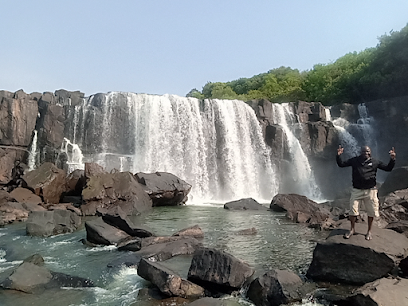
Kalambo Lodge
Discover tranquility and comfort at Kalambo Lodge, a perfect retreat in Lusaka, Zambia, blending local culture with modern amenities for an unforgettable experience.
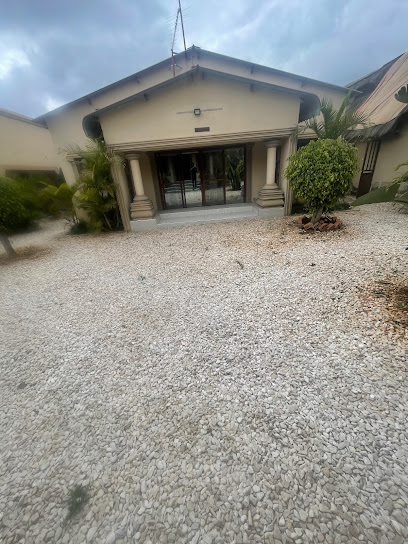
Kalambo Falls Lodge
Experience the breathtaking beauty and tranquility of Kalambo Falls Lodge along Lake Tanganyika, a perfect escape for nature lovers and adventurers.

Mutambe Akasuba
Experience the tranquil beauty of Mutambe Akasuba, a stunning hot spring and waterfall destination in Bulaya, Zambia, perfect for relaxation and exploration.
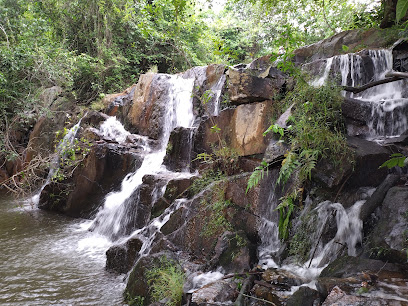
The Great Kalambo Falls Lodge
Experience the beauty of Zambia at The Great Kalambo Falls Lodge, a serene escape near the stunning Kalambo Falls, perfect for adventurers and nature lovers.
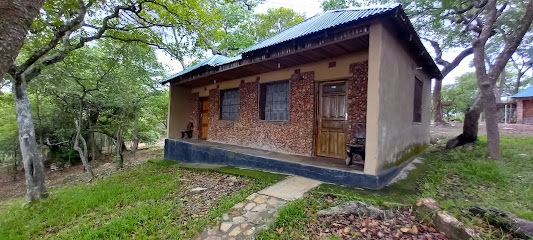
Unmissable attractions to see
Moto Moto Museum
Explore the rich heritage and culture of Zambia at the Moto Moto Museum in Mbala, a captivating tourist attraction filled with fascinating exhibits.
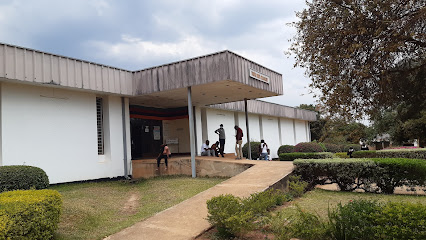
Niamkolo Church
Explore the architectural beauty and serene ambiance of Niamkolo Church in Mpulungu, a cultural gem that reflects Zambia's rich heritage.
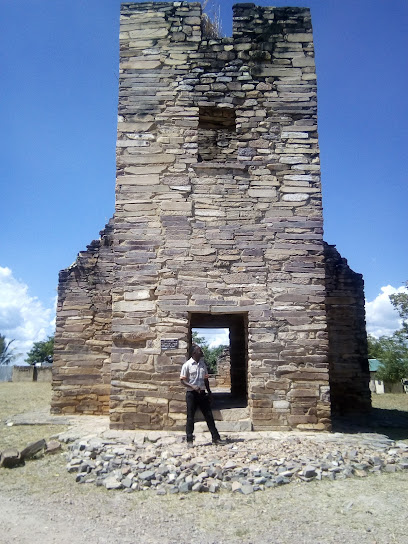
Kalambo Falls Forest Reserve
Discover the breathtaking Kalambo Falls Forest Reserve, a hidden gem in Tanzania featuring stunning waterfalls, rich biodiversity, and serene natural beauty.
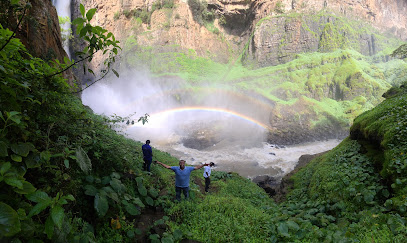
Bismarkburg Fort
Explore Bismarkburg Fort in Kasanga, Tanzania, a historical site offering rich insights into colonial history amid stunning natural beauty.
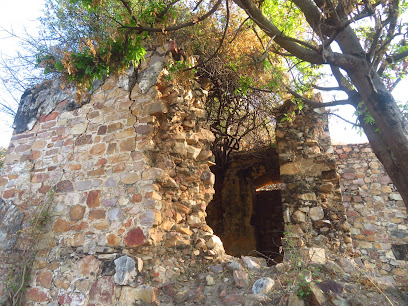
CHAMBESHI WATER AND SEWERAGE WATER PUMPING AREA
Explore the essential infrastructure of Chambeshi Water and Sewerage Pumping Area and understand its pivotal role in Mpulungu's community and environment.
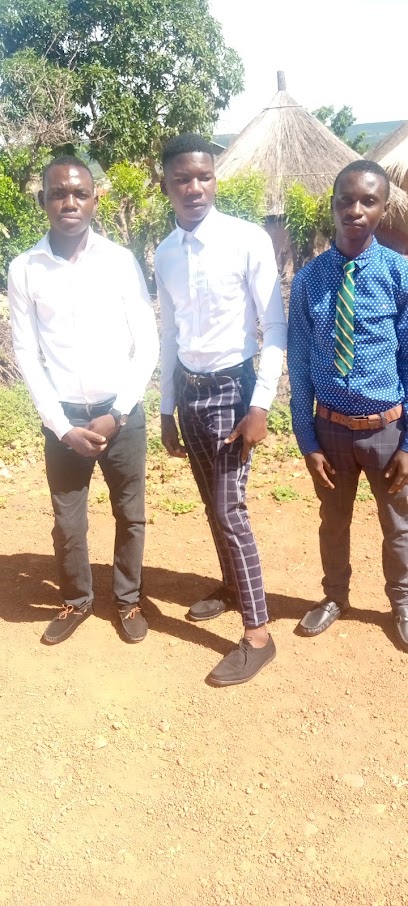
Kasanda
Explore the enchanting landscapes and vibrant culture of Kasanda, Tanzania - a hidden gem for adventure seekers and relaxation enthusiasts alike.
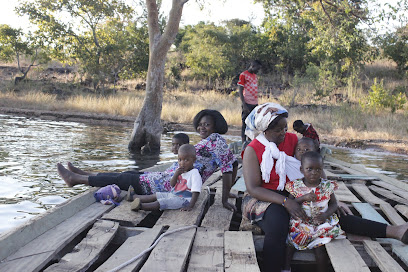
Kasakalabwe smooth stone shore
Experience the tranquil beauty of Kasakalabwe Smooth Stone Shore, a hidden treasure on the shores of Lake Tanganyika in Mpulungu, Zambia.
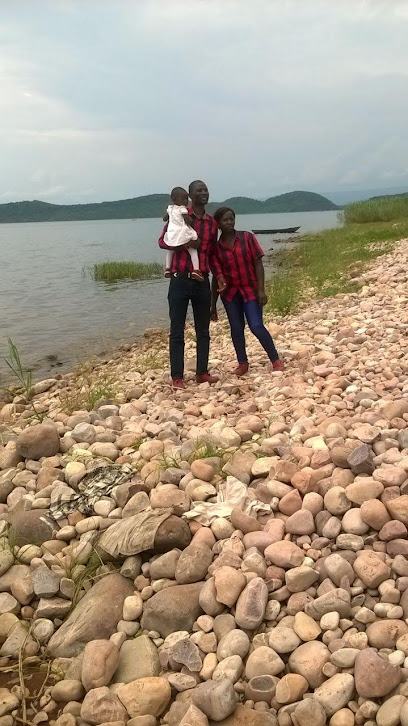
Small habour (pier)
Experience the natural beauty and tranquility of Small Harbour in Tomo Sakalani, a peaceful retreat for every traveler.

Source of the Luapula River
Experience the serene beauty of the Source of the Luapula River in Zambia, a perfect escape for nature lovers and adventure seekers.

MATUPA HILL
Explore the breathtaking views and serene landscapes of Matupa Hill in Chalumba, Zambia, a perfect escape for nature lovers and adventurers alike.

Mbala water pool
Explore the tranquil beauty of Mbala Water Pool, a serene natural attraction in Zambia perfect for relaxation and nature lovers.
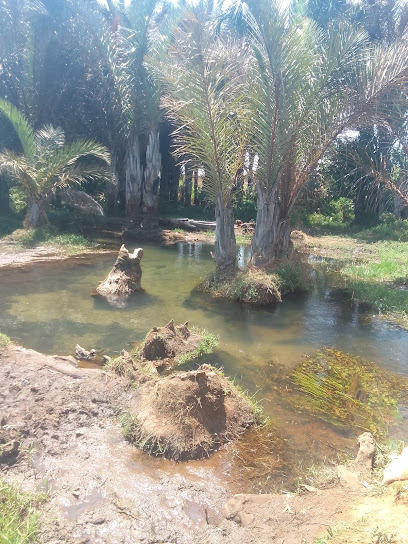
Sitatunga Valley Hike
Explore the breathtaking Sitatunga Valley Hike in Zambia, where lush landscapes and diverse wildlife await every nature enthusiast.

UNINGI PANS
Explore Uningi Pans in Lunzua, Zambia - a breathtaking destination rich in wildlife and natural beauty, perfect for nature lovers and adventurers alike.
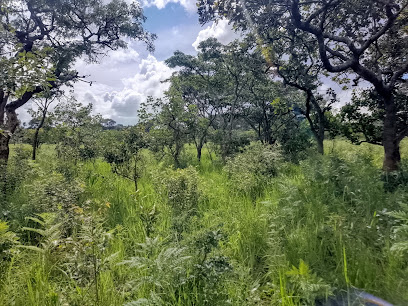
Essential places to dine
Mukwa Lodge & Restaurant
Discover Mukwa Lodge & Restaurant: Where Traditional Zambian Flavors Meet Modern Comfort in Kitwe.
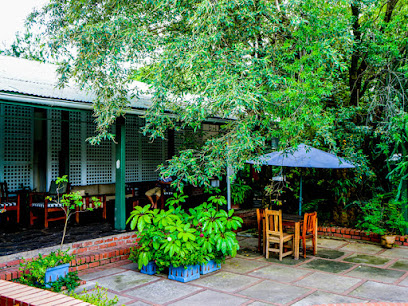
Cafe Choconilla
Experience the essence of Zambian cuisine at Cafe Choconilla in Kabwe – where local flavors meet cozy ambiance.
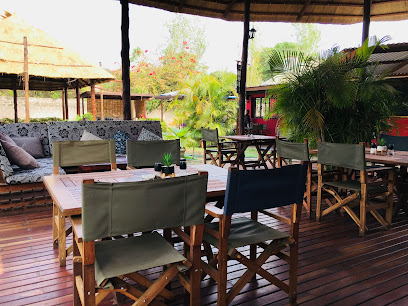
Waterfalls Hotel
Experience authentic Zambian cuisine at Waterfalls Hotel - where local flavors meet warm hospitality in Lusaka.
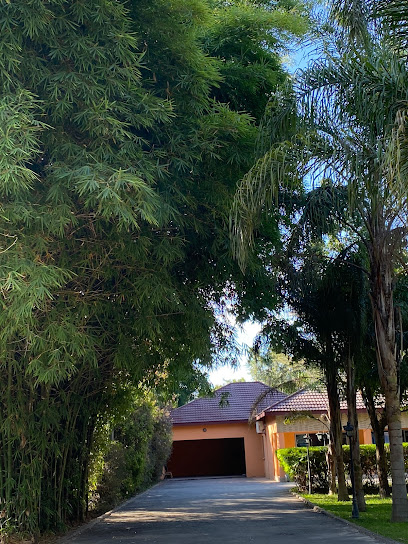
The Elephant Cafe, Livingstone
Discover The Elephant Cafe in Livingstone - where delicious cuisine meets stunning views amidst Zambian hospitality.
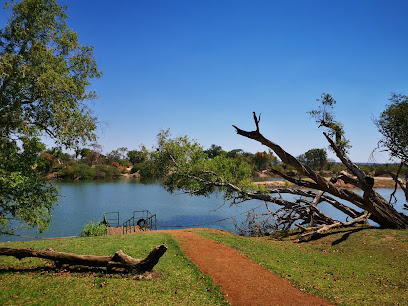
LaBamBam Place
Discover LaBamBam Place: A delightful restaurant in Lusaka offering authentic Zambian cuisine and a cozy atmosphere amidst vibrant shopping.
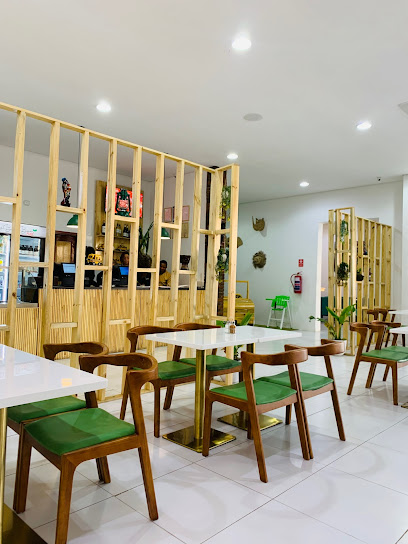
Kalambo Falls Lodge
Experience tranquility at Kalambo Falls Lodge on Lake Tanganyika - a perfect blend of comfort and nature awaits.

Kalomb Restaurant
Discover authentic Zambian cuisine at Kalomb Restaurant in Nyimba – where every meal is an unforgettable experience.

The Kalambo breezers
Experience tranquility at The Kalambo Breezers, a lakeside bar in Mbala offering refreshing drinks and stunning views of Lake Chila.
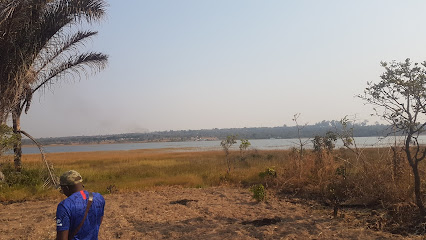
Matebeto Restaurant
Experience authentic Zambian cuisine at Matebeto Restaurant in Chililabombwe—where every dish tells a story.
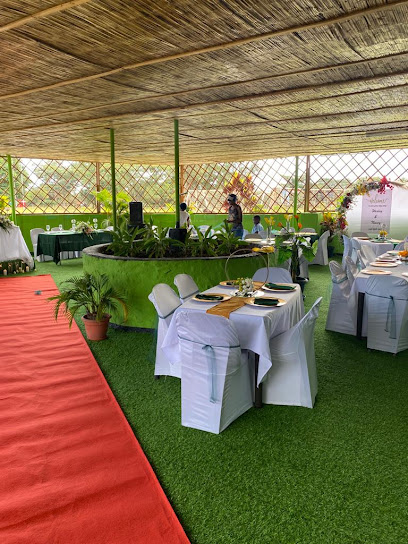
Markets, malls and hidden boutiques
EastPark Mall
Explore EastPark Mall in Lusaka, a vibrant shopping destination featuring diverse retail shops, dining options, and entertainment for an unforgettable experience.
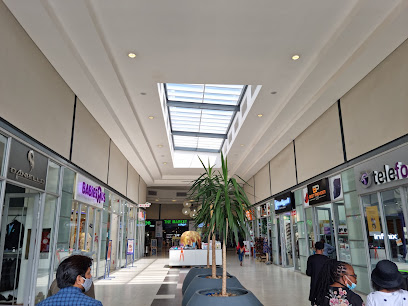
Kalambo Falls
Discover the breathtaking beauty of Kalambo Falls, one of Africa's tallest waterfalls, set in the lush scenery of Tanzania.
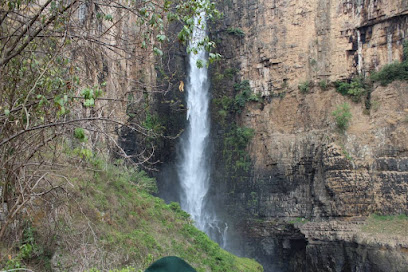
Ntumbi Shopping Center
Explore the Ntumbi Shopping Center in Kalulushi for a delightful blend of shopping, dining, and local culture, perfect for every tourist.
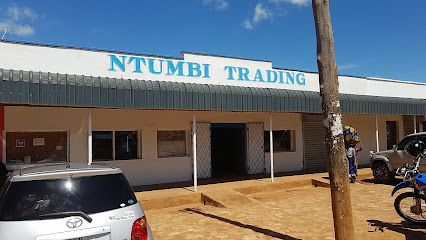
Leamal Communications
Leamal Communications in Mbala: A Shopping Paradise Embracing Local Culture and Modern Retail
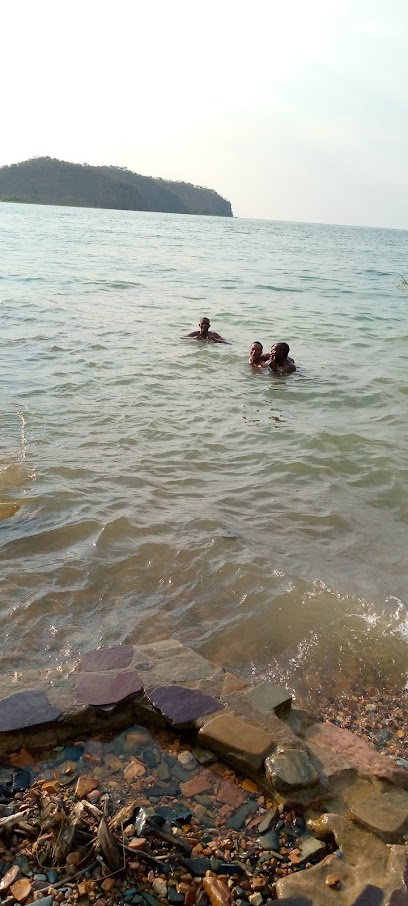
Highcom Business Center
Discover the essential hub for internet access and business support at Highcom Business Center in Mbala, Zambia.
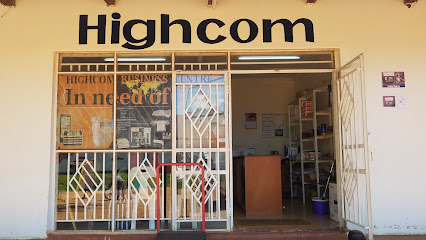
Bakery
Experience the taste of Mbala at Mbala Bakery, where fresh bread and delightful pastries await every visitor.
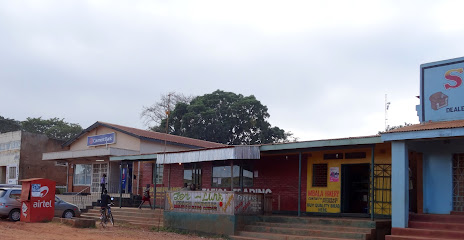
China Shop
Explore the vibrant local and international products at China Shop in Mpulungu—your destination for authentic Zambian flavors and unique culinary souvenirs.

Samaras Fisheries Ltd
Discover the ultimate fishing gear and expertise at Samaras Fisheries Ltd in Mpulungu, your gateway to unforgettable adventures on Lake Tanganyika.
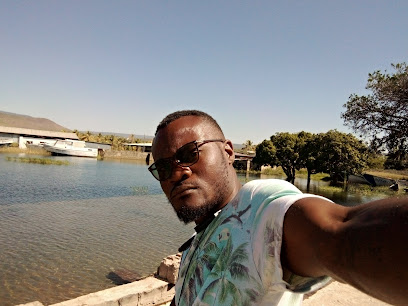
UNIMART
Explore the best of local and international products at UNIMART, the top supermarket in Mpulungu, Zambia.
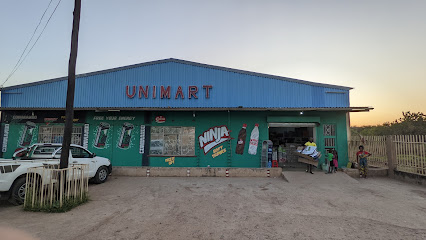
Shilungafye Shop
Explore the authentic shopping experience at Shilungafye Shop, where local crafts and culture meet in the heart of Mpulungu, Zambia.
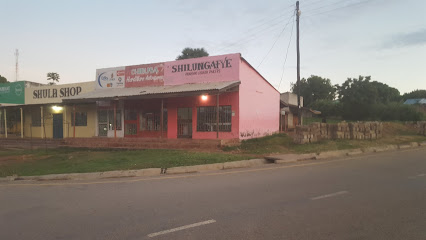
Amos Grocery
Explore Amos Grocery in Mpulungu for an authentic taste of Zambian culture and local flavors in a friendly grocery store atmosphere.

Gk Trading
Explore local flavors and essentials at Gk Trading, the premier grocery store in Mbala, Zambia, for a unique shopping experience.

Bavika shopping center
Explore Bavika Shopping Center in Mbala, where local culture meets vibrant retail, perfect for tourists seeking authentic experiences.

MEIDAH GROCERY STORE
Experience local culture and flavors at Meidah Grocery Store in Mbala, your go-to spot for fresh produce and Zambian essentials.

SUNSICHY FURNITURE
Discover the elegance of Asian decor at SUNSICHY FURNITURE in Mbala, where each piece tells a story of culture and craftsmanship.
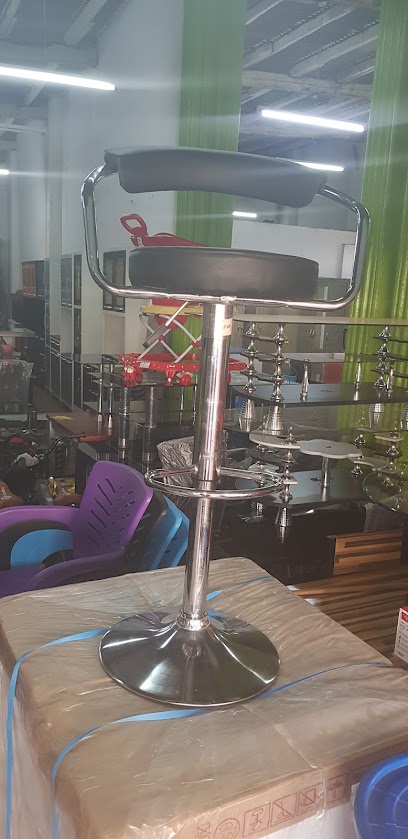
Essential bars & hidden hideouts
Kalambo Falls
Discover the breathtaking Kalambo Falls, a stunning natural wonder cascading 235 meters into the Kalambo River, surrounded by lush landscapes.
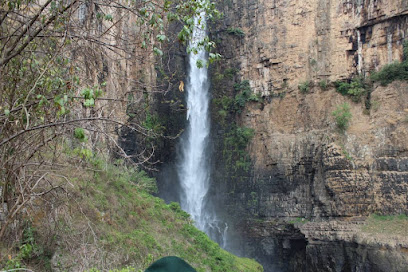
The Waterfront Bar
Experience the serene beauty of Lake Tanganyika at The Waterfront Bar, where refreshing drinks and stunning views await every visitor.
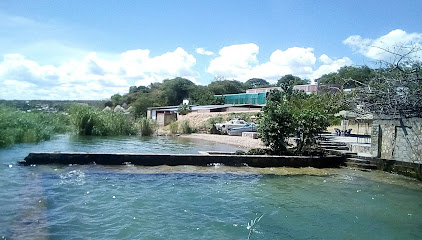
Parkway Lodge Harbour Rd
Experience the vibrant atmosphere and local flavors at Parkway Lodge, a charming bar near the harbor in Mpulungu, Zambia.
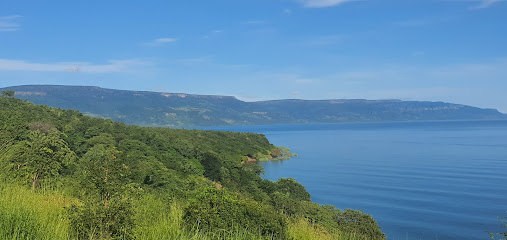
Kalambo Falls Lodge
Discover the beauty of Kalambo Falls and the serenity of Lake Tanganyika at Kalambo Falls Lodge, a perfect retreat for nature lovers.

Alkan Restaurant
Discover the flavors of Zambia at Alkan Restaurant in Mbala, a cozy spot for authentic local cuisine and warm hospitality.

The Kalambo breezers
Experience the serene beauty of Lake Chila at The Kalambo Breezers, a perfect bar getaway in Mbala, Zambia, offering refreshing drinks and stunning views.
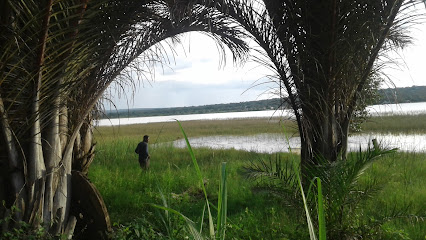
Epic Smoke
Experience the vibrant flavors of Mpulungu at Epic Smoke, a top-rated restaurant where local ingredients meet culinary creativity.
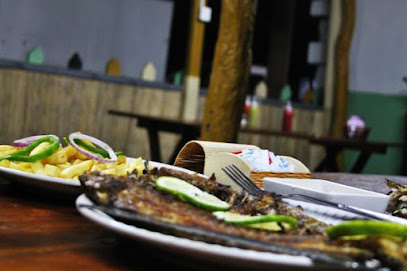
The Great Kalambo Falls Lodge
Immerse yourself in Zambia's natural beauty at The Great Kalambo Falls Lodge, a serene escape near Africa's tallest waterfall.
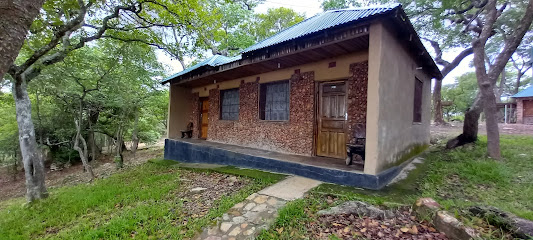
Lake Chila Yacht club
Experience the tranquil beauty of Lake Chila at the Yacht Club, offering local drinks and cuisine against a stunning lakeside backdrop.
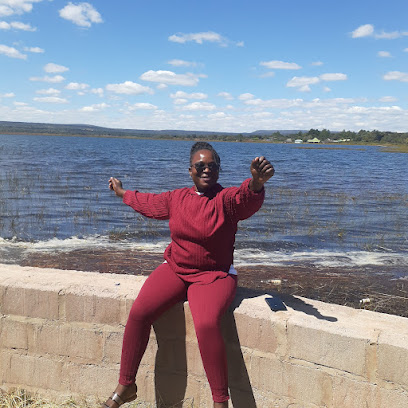
Police Club Soft Mwanza
Experience the vibrant nightlife of Mbala at Police Club Soft Mwanza, where local culture meets refreshing drinks and warm hospitality.
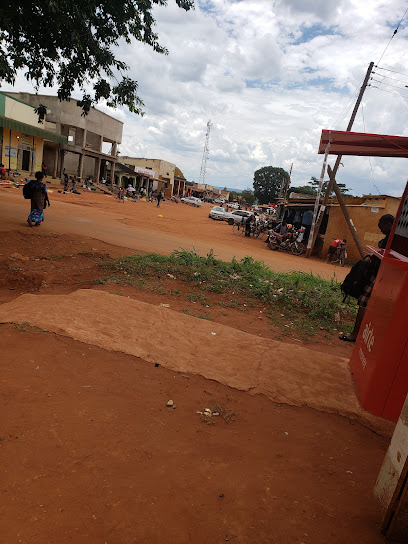
Cloud Sound Pub
Cloud Sound Pub in Mpulungu - Discover local culture, enjoy refreshing drinks, and experience vibrant entertainment in a welcoming atmosphere.

THE PLACE , SPARKS BAR
Discover the charm of The Place, Sparks Bar in Mpulungu, where lush greenery meets vibrant local culture for an unforgettable experience.
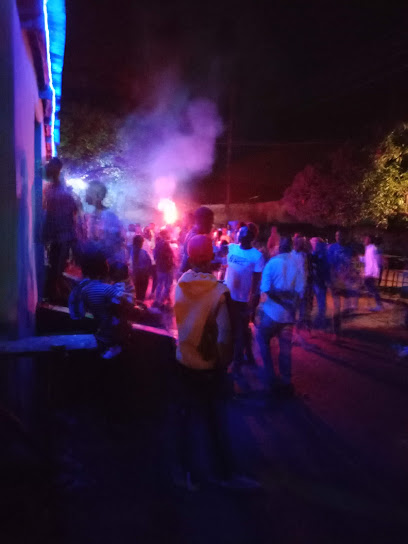
Lucia Mendez Pub and Grill
Discover the taste of Zambia at Lucia Mendez Pub and Grill, a cozy eatery in Mpulungu offering fresh local and international cuisine.

THE PLACE KIDS AND ADULT PLAY PARK
Discover fun for all ages at The Place Kids and Adult Play Park in Mpulungu, where laughter and adventure await every visitor.
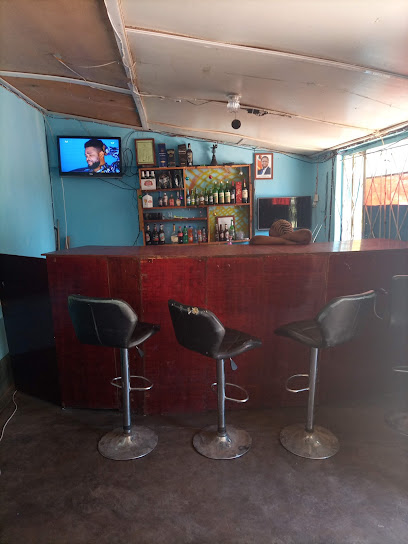
Sangoz beer gardens
Experience the vibrant atmosphere and delicious flavors at Sangoz Beer Gardens in Mpulungu, where Zambian hospitality shines.
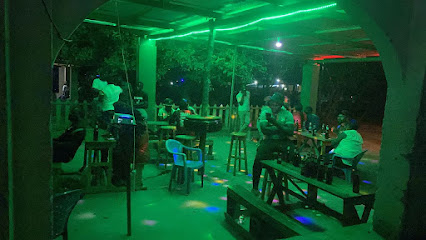
Local Phrases about Kalambo Falls
-
- HelloMwaiseni
[m-wai-se-ni] - GoodbyeKwaheri
[kwa-he-ri] - YesEe
[ee] - NoAwe
[a-we] - Please/You're welcomeTafadhali
[ta-fa-dha-li] - Thank youZikomo
[zi-ko-mo] - Excuse me/SorryPepani
[pe-pa-ni] - How are you?Ulipo?
[u-li-po] - Fine. And you?Ndimavuto, kaya inu?
[n-di-ma-vu-to, ka-ya i-nu] - Do you speak English?Mungayankhula chiKabichi?
[mun-ga-yan-khu-la chi-ka-bi-chi] - I don't understandSindikudziwa
[sin-di-ku-dzi-wa]
- HelloMwaiseni
-
- I'd like to see the menu, pleaseNdikufuna kuyang'ana menu, chonde
[n-di-ku-fu-na ku-yan-g'a-na me-nu, cho-nde] - I don't eat meatSindikudya nyama
[sin-di-ku-dya nya-ma] - Cheers!Tiyeni
[ti-ye-ni] - I would like to pay, pleaseNdikufuna kulipa, chonde
[n-di-ku-fu-na ku-li-pa, cho-nde]
- I'd like to see the menu, pleaseNdikufuna kuyang'ana menu, chonde
-
- Help!Chilimba!
[chi-lim-ba] - Go away!Pitani!
[pi-ta-ni] - Call the Police!Pemphani Police!
[pem-pha-ni po-li-ce] - Call a doctor!Pemphani dokotala!
[pem-pha-ni do-ko-ta-la] - I'm lostNdamulira
[n-da-mu-li-ra] - I'm illNdachita kugona
[n-da-chi-ta ku-go-na]
- Help!Chilimba!
-
- I'd like to buy...Ndikufuna kugula...
[n-di-ku-fu-na ku-gu-la] - I'm just lookingNdimakhala ndikugwira
[n-di-ma-kha-la n-di-ku-gwi-ra] - How much is it?Yachitani?
[ya-chi-ta-ni] - That's too expensiveIyi ndi chakudula kwambiri
[i-yi n-di cha-ku-du-la kwa-mbi-ri] - Can you lower the price?Mungatenge bonya?
[mun-ga-ten-ge bo-nya]
- I'd like to buy...Ndikufuna kugula...
-
- What time is it?Iyeyi ndi masiku angati?
[i-ye-yi n-di ma-si-ku an-ga-ti] - It's one o'clockNdi saa imodzi
[n-di sa-a i-mo-dzi] - Half past (10)Makumi awiri mawa
[ma-ku-mi a-wi-ri ma-wa] - MorningUsiku
[u-si-ku] - AfternoonMadzulo
[ma-dzu-lo] - EveningMawa
[ma-wa] - YesterdayMawa
[ma-wa] - TodayLero
[le-ro] - TomorrowMawa
[ma-wa] - 1Mwana
[mwa-na] - 2Zawiri
[za-wi-ri] - 3Zachitatu
[za-chi-ta-tu] - 4Zane
[za-ne] - 5Zachanu
[za-cha-nu] - 6Zachitha
[za-chi-tha] - 7Zachisi
[za-chi-si] - 8Zachibanda
[za-chi-ban-da] - 9Zachikulu
[za-chi-ku-lu] - 10Zawiri
[za-wi-ri]
- What time is it?Iyeyi ndi masiku angati?
-
- Where's a/the...?Muli kuti...?
[mu-li ku-ti] - What's the address?Adilesi ndi yotani?
[a-di-le-si n-di yo-ta-ni] - Can you show me (on the map)?Mungandiyenera (pamapu)?
[mun-gan-di-ye-ne-ra (pa-mapu)] - When's the next (bus)?Ndi nthawi yotani (bus)?
[n-di ntha-wi yo-ta-ni (bus)] - A ticket (to ....)Tikiti (kutali...)
[ti-ki-ti (ku-ta-li)]
- Where's a/the...?Muli kuti...?
History of Kalambo Falls
-
Kalambo Falls is not just a natural wonder but also a significant archaeological site. Excavations have revealed that this area has been inhabited by humans for over 250,000 years. The site provides crucial evidence of one of the earliest known human settlements. Stone tools and other artifacts have been discovered here, making it a treasure trove for archaeologists studying early human history.
-
Around 1,500 years ago, the Kalambo Falls area saw the emergence of Iron Age settlements. Archaeological findings include iron smelting furnaces and pottery, indicating a sophisticated level of technological and cultural development. These discoveries provide valuable insights into the life and skills of the early inhabitants.
-
In recognition of its historical and cultural significance, Kalambo Falls was declared a National Monument in 1964. This status helps protect the area and its archaeological treasures, ensuring that future generations can continue to study and appreciate its rich history. The monument designation also aids in promoting tourism and educational activities.
-
Kalambo Falls is situated in a region inhabited by the Tabwa people, who have a rich cultural heritage. Traditional ceremonies and rituals are still practiced here, often involving music, dance, and storytelling. These cultural practices provide a unique insight into the local way of life and their connection to the natural environment.
-
During the colonial period, European explorers documented Kalambo Falls extensively. The first recorded European to visit the falls was David Livingstone in the 19th century. His writings and sketches brought international attention to the falls, sparking interest among adventurers, scientists, and tourists alike.
Kalambo Falls Essentials
-
Kalambo Falls is located on the border between Zambia and Tanzania. The nearest major Zambian city is Mbala, approximately 40 kilometers away. The closest airport is Mbala Airport (MMQ), which primarily handles domestic flights. From Mbala, you can hire a taxi or use local transport to reach the falls. Alternatively, if you're coming from Tanzania, the nearest town is Sumbawanga, from which you can hire a vehicle to reach the falls.
-
Transportation options in the area are limited but manageable with planning. Taxis and minibuses are available for hire in Mbala. It is advisable to arrange transportation in advance, especially if you plan to travel from Mbala to the falls. Renting a car is another option, but ensure it is a 4WD, as the roads can be rough. Guided tours from Mbala can also be arranged, providing both transportation and insightful information about the area.
-
The official currency in Zambia is the Zambian Kwacha (ZMW). Credit cards are not widely accepted in rural areas, so it is essential to carry enough cash. ATMs are available in Mbala, but it is advisable to withdraw sufficient funds before heading to Kalambo Falls. In nearby towns, you may also find currency exchange services. It is wise to carry small denominations for easier transactions.
-
Kalambo Falls and its surrounding areas are generally safe for tourists. However, it is important to take standard precautions. Avoid traveling alone at night and keep your belongings secure. There are no specific high-crime areas targeting tourists, but it is always best to stay vigilant, especially in crowded places like markets. Inform someone of your travel plans if you are exploring remote areas.
-
In case of emergency, dial 999 for immediate assistance in Zambia. It is crucial to have travel insurance that covers medical emergencies. The nearest medical facilities are located in Mbala, which offers basic healthcare services. For more serious medical issues, you may need to be transported to a larger city. Pharmacies are available in Mbala for purchasing over-the-counter medications.
-
Fashion: Do dress modestly, especially in rural areas. Avoid wearing revealing clothing. Religion: Do respect local customs and traditions. Public Transport: Do be respectful and give up your seat to elderly passengers. Don't eat or drink on public transport. Greetings: Do greet people with a handshake. A friendly smile and a greeting in the local language (Bemba or Swahili) can go a long way. Eating & Drinking: Do try local delicacies and accept food offerings graciously. Don't refuse hospitality, as it is considered impolite.
-
To experience Kalambo Falls like a local, visit during the dry season (May to October) when the weather is more favorable for hiking and exploring. Engage with local guides, who can offer insights into the history and significance of the falls. Don't miss the opportunity to explore the archaeological sites near the falls, which house some of the earliest evidence of human activity in the region. Enjoy a picnic by the falls, but ensure you leave no trace behind to preserve the natural beauty of the area.
Nearby Cities to Kalambo Falls
-
Things To Do in Mbeya
-
Things To Do in Karonga
-
Things To Do in Tabora
-
Things To Do in Mzuzu
-
Things To Do in Kigoma
-
Things To Do in Nkhata Bay
-
Things To Do in Iringa
-
Things To Do in Bururi
-
Things To Do in Rumonge
-
Things To Do in Ndola
-
Things To Do in Dodoma
-
Things To Do in Singida
-
Things To Do in Kitwe
-
Things To Do in Chipata
-
Things To Do in Gitega








